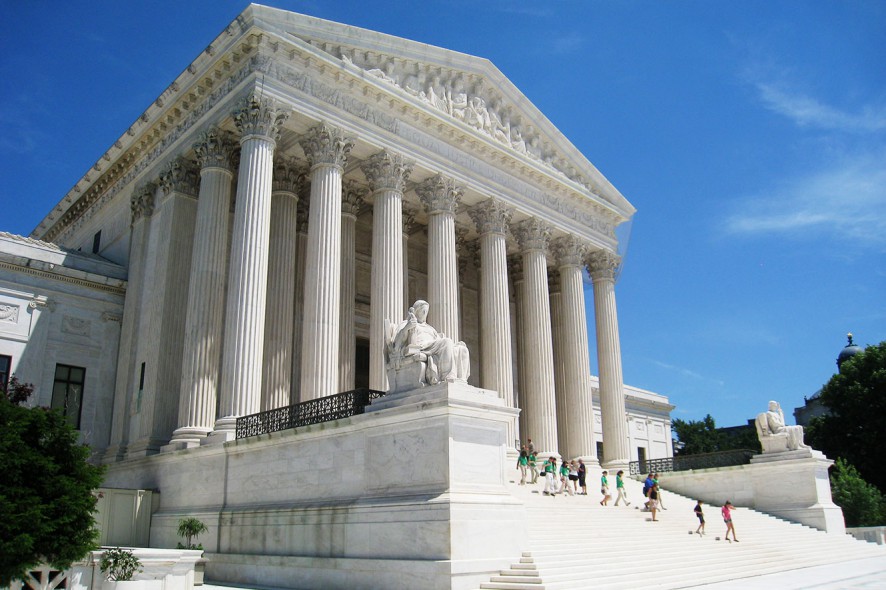Supreme Court of The United States: A nine-Judge Bench, by a majority of 5:4, upheld the travel ban on people from five Muslim-majority countries imposed by President Donald J. Trump (vide Proclamation No. 9645). John Roberts, CJ., while delivering the opinion of the Court, held that the Government has set forth a sufficient national security justification to survive rational basis review.
In September 2017, the President imposed entry restrictions on nationals from eight foreign states whose system for managing and sharing information about their nationals were inadequate according to the President. A review system was undertaken by the Department of Homeland Security which identified those foreign states having deficient information sharing practices and posing national security concerns. Pursuant to the review, the Acting Secretary of Homeland Security recommended entry restrictions on certain nationals from eight foreign states (Muslim majority countries). After consultations with multiple Cabinet Members, the President issued the Proclamation exercising authority under Sections 1182(f) and 1185(a) of Act No. 8 of United States Code (USC). Plaintiffs (respondents herein), the State of Hawaii and Muslim Association of Hawaii, challenged the Proclamation as violating Immigration and Nationality Act (INA) and Establishment Clause. The District Court of Hawaii (and also of Maryland) granted a nationwide preliminary injunction barring the enforcement of the restrictions, which was affirmed by the Ninth Circuit Court of Appeal.
However, the Hon’ble Supreme Court reversed the order of the lower courts and held that the President has lawfully exercised the broad discretion granted to him under the above-mentioned Section 1182(f) to suspend the entry of aliens into US; the provision vests the President with ample power to impose such entry restrictions; the sole requirement being that the President ‘finds’ that entry of such aliens ‘would be detrimental to the interests of the United States’; the President had undoubtedly fulfilled that requirement. The Hon’ble Court dismissed all the challenges put forth by the respondents including the allegation that primary purpose of the Proclamation was religious animus. It was observed, admission and exclusion of foreign nationals is a ‘fundamental sovereign attribute exercised by the Government’s political departments largely immune from judicial control’. Further, the Proclamation was premised on national security concerns and said nothing about religion; entry restrictions on nationals of Muslim-majority countries were limited to those nations that were previously designated by the Congress as posing national security risks. The Court noted three features, firstly, since the imposition of the ban, three countries have been removed from the list; secondly, the Proclamation contains various exceptions to the restrictions; thirdly, it contains a waiver program for all foreign nationals seeking entry as immigrants and non-immigrants. Finally, observing that it cannot substitute its own assessment for the Executive’s predictive judgments on such matters, the Hon’ble Supreme Court upheld the entry ban which is now applicable on five out of original eight Muslim-majority countries. [Trump v. Hawaii, 2018 SCC OnLine US SC 28 : 585 US ____ (2018), decided on 26-06-2018]






